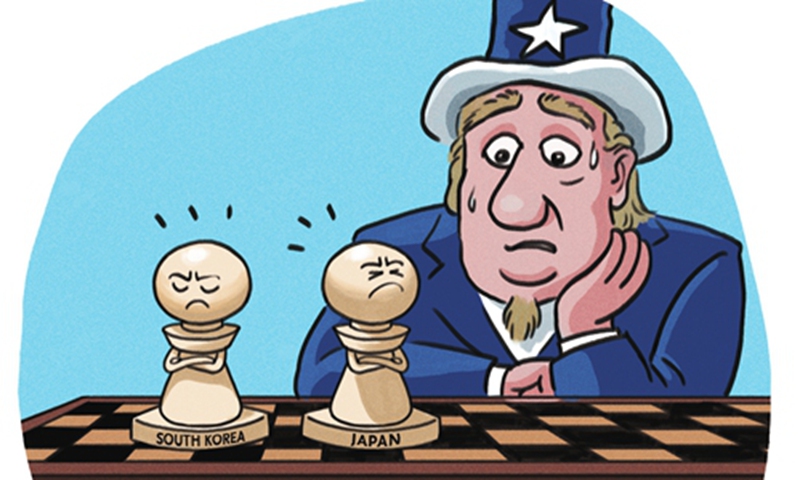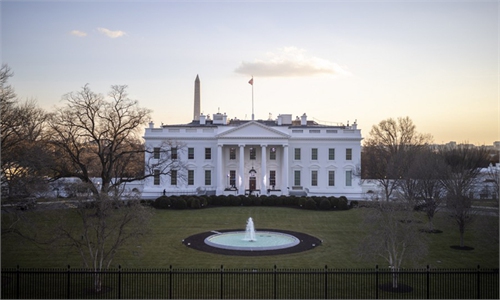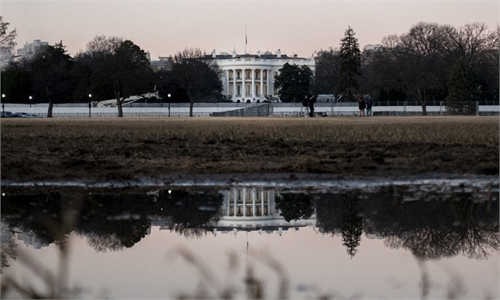US wants Japan, South Korea to become bigger bargaining chips: Global Times editorial

Illustration: Liu Rui/GT
US Secretary of State Antony Blinken and Defense Secretary Lloyd Austin arrived in Japan on Monday before heading to South Korea on Wednesday. The US will hold the "2+2" diplomatic and security talks with the two countries.The US has been very lofty in stressing the importance of the two meetings in strengthening the US alliance system. Austin said on Sunday that the US goal was "to make sure that [the US] has the capabilities and the operational plans to be able to offer a credible deterrence to China or anybody else who would want to take on the US."
Yang Jiechi, director of China's Office of the Central Commission for Foreign Affairs, and Chinese State Councilor and Foreign Minister Wang Yi will meet Blinken and US national security advisor Jake Sullivan in Anchorage, Alaska on Thursday. The more Washington stresses the importance of the US-Japan and US-South Korea "2+2" meetings, the more it makes the two meetings look like preparatory talks for the US' strategic dialogue with China.
The US' intensive consultation with its allies is directed at its relationship with China, and those allies have become more of a foil as Washington's strategic bargaining chips with Beijing.
However, the logic in this is wrong. The root that has made Washington anxious is not because the US' relations with its allies have loosened. The fact has not been changed that Japan and South Korea still depend on the US for their security. What Washington sees as a real threat is China's increasing economic development, and the comprehensive growth that comes with it. Unfortunately, the US can hardly solve this problem by hearing more comforting words from its allies.
China and Japan have disputes, but both countries have a common interest in managing those disputes. The biggest task for Japan is to manage its relations with both the US and China well and to establish a special strategic balance centered on Japan's own interests. No Japanese politician would put China-Japan relations and US-Japan relations into a zero-sum model. It is true that Japan has a desire to strengthen Japan-US relations and is willing to express its loyalty to the US to achieve this end. But there is bound to be a limitation to the strategic function of the Japan-US alliance against China.
South Korea would not become the strategic vanguard of the US to contain China. The scale of economic cooperation between China and South Korea completely overwhelms that between the US and South Korea. To ask South Korea to decouple from China would be like trading an apple for a crabapple, which is much smaller than the former one.
Both Japan and South Korea hoped that the US would send them more resources and bargaining chips that would increase their influence and advantage in dealing with bilateral relations. But they don't want the Americans to put knives into their hands and force them to stab China or sacrifice their own interests for the US' sake.
The US has made up a lot of accusations against China, accusing China of breaking rules in many of its actions. Gradually, they succeeded in deceiving themselves and then deeply indulged into the belief that the US' problems were primarily China's fault, and that containment and decoupling from China would restore US' absolute dominance in the world.
All of the US' problems should be attributed to the decline in its competitiveness in the era of globalization. It is too addicted to military and financial hegemony. Its ability and speed of innovation is declining, and its labor force as a whole is becoming lazy. To maintain its advantage, the US wants to keep the existing stock of advantages instead of creating more advantages. The country will inevitably face problems in the long run if it goes on like this.
Globalization has changed some DNA of global economic operations. Previously, a small and exclusive circle, headed by the US, occupied the chance to get rich and the winner took all. But that era is over forever. The elements of economic development are irreversibly flowing across the world. Mankind has become more civilized and the benefits that can be obtained from gunboat diplomacy have been greatly reduced. The meaning of national security is changing and it would be fundamentally wrong to copy the strategy during the Cold War era.
Alaska will be the real focus of international politics this week. During their visits to Japan and South Korea, Blinken and Austin should focus more on the US' bilateral relations with the two countries. If their visits aim only at building momentum for the upcoming China-US strategic dialogue, it would become more of an exploitation of Japan and South Korea. Even though Japan and South Korea are happy to welcome the visits of US secretary of state and defense secretary, the two countries need to be cautious not to get hijacked in their mutual exploitation with the US.



